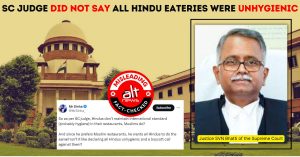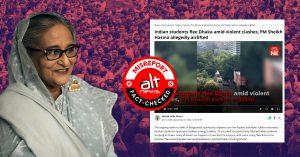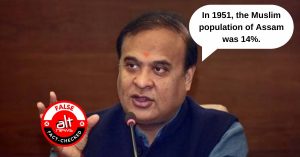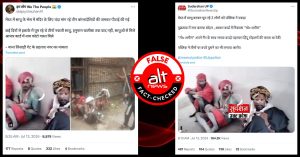Several major global media outlets have called out Prime Minister Narendra Modi for his hate speech-laden public address at Rajasthan’s Banswara on Sunday.
Speaking at a pre-poll rally in the southern Rajasthan town at the height of election frenzy in India, Modi brought out the most trusted weapon in his repertoire — anti-Muslim hate. He said, “When they (the Congress) were in power, they said that Muslims had the first right to the properties of the state. This means that they would collect these properties and give them to the ones who have more kids (insinuating Muslims). They will give it to the ghusapethyon (infiltrators). Do you want to give away your hard-earned money to the intruders? This is what the Congress manifesto says — the amount of gold owned by our mothers and daughters will be measured, collected and distributed. They will distribute this wealth among those… the Manmohan Singh government had said Muslims had the first right to the properties. These urban naxals will not even spare the mothers and sisters or their mangalsutra. They will go that far.”
In one sweeping statement that hinges on several falsehoods, the Prime Minister of the country referred to the around 200 million Muslims living in India as ‘infiltrators’ and mocked them as “those who have more kids.” If the sheer crassness of the phrase ‘jinke zyada bachche hain’ coming from a head of state was shocking, equally stunning was how he indulged in scaremongering at the expense of Muslims by painting them as the devil out to devour the wealth of the country’s majority Hindus. Not just any wealth, but ‘mangalsutra’, a necklace worn by Indian Hindu brides, which carries religious connotations. All this, because he sees electoral gains in alienating Muslims and deepening the already vicious communal divide in the country that he ‘serves’ as Prime Minister, or, as he once called himself, the ‘pradhan sevak’.
Textbook Example of Hate Speech
If one goes by the Hate Crime and Hate Speech (Combat, Prevention and Punishment) Bill, 2022, introduced in the Rajya Sabha by the Modi government a couple of years back, Modi’s speech is a textbook example of hate speech, the likes of which his government apparently wants to curb.
Point No. 5 in Chapter II of the proposed Bill, which defines the offence of hate speech and hate crime, states, “5. (1) Any person:— (a) who intentionally publishes, propagates or advocates anything or communicates to one or more persons in a manner that could reasonably be construed to demonstrate a clear intention to harm or incite harm or promote or propagate hatred, based on one or more of the following grounds:
(i)religion, (ii) race, (iii) caste or community, (iv) sex, (v) gender, (vi) sexual orientation, (vii) place of birth, (viii) residence, (ix) language, (x) disability, or (xi) tribe;
or (b) who intentionally distributes or makes available an electronic communication which that person knows constitutes hate speech as referred in clause (a) through an electronic communications system which is— (i) accessible by any member of the public; or (ii) accessible by, or directed at, a specific person who can be considered to be a victim of hate speech;
or (c) who intentionally, in any manner whatsoever, displays any material or makes available any material which is capable of being communicated any which that person knows constitutes hate speech as referred in clause (a), which is accessible by, or directed at, a specific person who can be considered to be a victim of hate speech, shall be guilty of an offence of hate speech.”
If one is to extract the relevant portion from the above passage, one finds that the proposed Bill says that any person who intentionally publishes, propagates or advocates anything or communicates to one or more persons in a manner that could reasonably be construed to demonstrate a clear intention to harm or incite harm or promote or propagate hatred based on religion (among other categories) shall be guilty of an offence of hate speech.
Prime Minister Modi, thus, is beyond any reasonable amount of doubt, guilty of the offence of hate speech since his words demonstrated a clear intention to promote and propagate hatred against a community based on religion.
Modi’s Hate Speech Fits Snugly Into BJP’s Communal Agenda
When one puts Modi’s remarks into perspective, one finds that they fit snugly into the larger scheme of BJP’s communal political agenda of establishing the narrative that Hindus in India are in danger from Muslims. BJP leaders on political platforms, their spokespersons on TV and Right Wing trolls and propaganda outlets on social media have, over the last decade or so, religiously carried out this one task with single-minded dedication — painting the Muslim person next to you as a threat.
PM Modi has at times put on the mask of inclusivity, for example when he spoke of Haj quota at a rally in Aligarh on Monday (the day after the Banswara rally). “I had requested the Crown Prince of Saudi Arabia to increase the Haj quota for our Muslim brothers and sisters in India. Today, not only has India’s Haj quota increased but visa rules have also been made easier. The government took a very important decision,” he said. However, that mask has come off on several occasions, particularly at times when his party has stood to benefit from a communal polarization.
For example, at a public rally in Dumka ahead of 2019 Vidhan Sabha polls in Jharkhand, Modi said that those who had been protesting against CAA were identifiable by their clothes. “Yeh Congresswale aur uske saathi… halla macha rahe hain, toofaan khara kar rahe hain. Aur unki baat chalti nahin hai to aag janee phaila rahe hain. Jo aag laga rahe hain, TV pe unke jo drishya aa rahe hain, yeh aag lagaane vaale kaun hain, woh unke kapdon se hi pata chal jaata hai.” (Congress and its allies are creating a chaos, raising a storm. And if that fails, they are spreading a fire. From the visuals on TV, those setting the fire can be identified by their clothes).” Dumka was one of the most important seats in the state as the chief minister candidate of the Congress-JMM-RJD alliance, Hemant Soren, was fighting from that seat as well as from Barheit.
Again, ahead of the 2019 general elections, at a rally in Nanded on April 6, Modi played the Muslim card, when he slammed Rahul Gandhi for fighting the elections from Wayanad, by saying, “Congress ke naamdaar ne microscope lekar bharat mein ek aisi seat khoji hai jahan par woj muqabala karne ki taakat rakh sake. Seat bhi aisi jahan par desh ki majority minority mein hai. (The Congress leader used a microscope to find out a safe seat for himself to contest from and selected a seat where the majority is in minority).”
Even earlier, as Gujarat chief minister in 2002, months after the pogrom, Modi had called Muslim relief shelters baby-making factories. At a public meeting as part of his Gaurav Yatra in Mahasena district on September 9, Modi stated, “What brother, should we run relief camps? (referring to relief camps for riot affected Muslims). Should I start children producing centers there, i.e relief camps? We want to achieve progress by pursuing the policy of family planning with determination. We are 5 and our 25 !!! (Ame panch, Amara panch, referring the Muslim polygamy). On whose name such a development is pursued? Cant Gujarat implement family planning? Whose inhibitions are coming in our way? Which religious sect is coming in the way? Why money is not reaching the poor? If some people go on producing children, the children will do cycle puncture repair only?”
Hence, for those who have carefully observed Modi’s rise to power in Gujarat and then in national politics, Sunday’s remarks — in which he attacked Congress and Muslims by putting them in the same bracket — are bound to bring a sense of deja vu.
At the moment, the Modi-led Union Cabinet does not have a single Muslim minister. BJP does not have a single Muslim MP in its nearly 300-strong Parliamentary party. It has fielded only one Muslim candidate in the entire country for the upcoming general elections.
Global Media Deplores Modi’s Hate Speech
Several major global media outlets have published reports on Modi’s Banswara address and used the phrase ‘hate speech’ in their headlines. These include The Washington Post, CNN, Al Jazeera, Time Magazine, BBC, among others.
The Washington Post article headlined “Modi accused of ‘hate speech’ toward India’s Muslims in election rally” states that Modi in his speech “seemingly cast Muslims as taking the wealth of other Indians.”
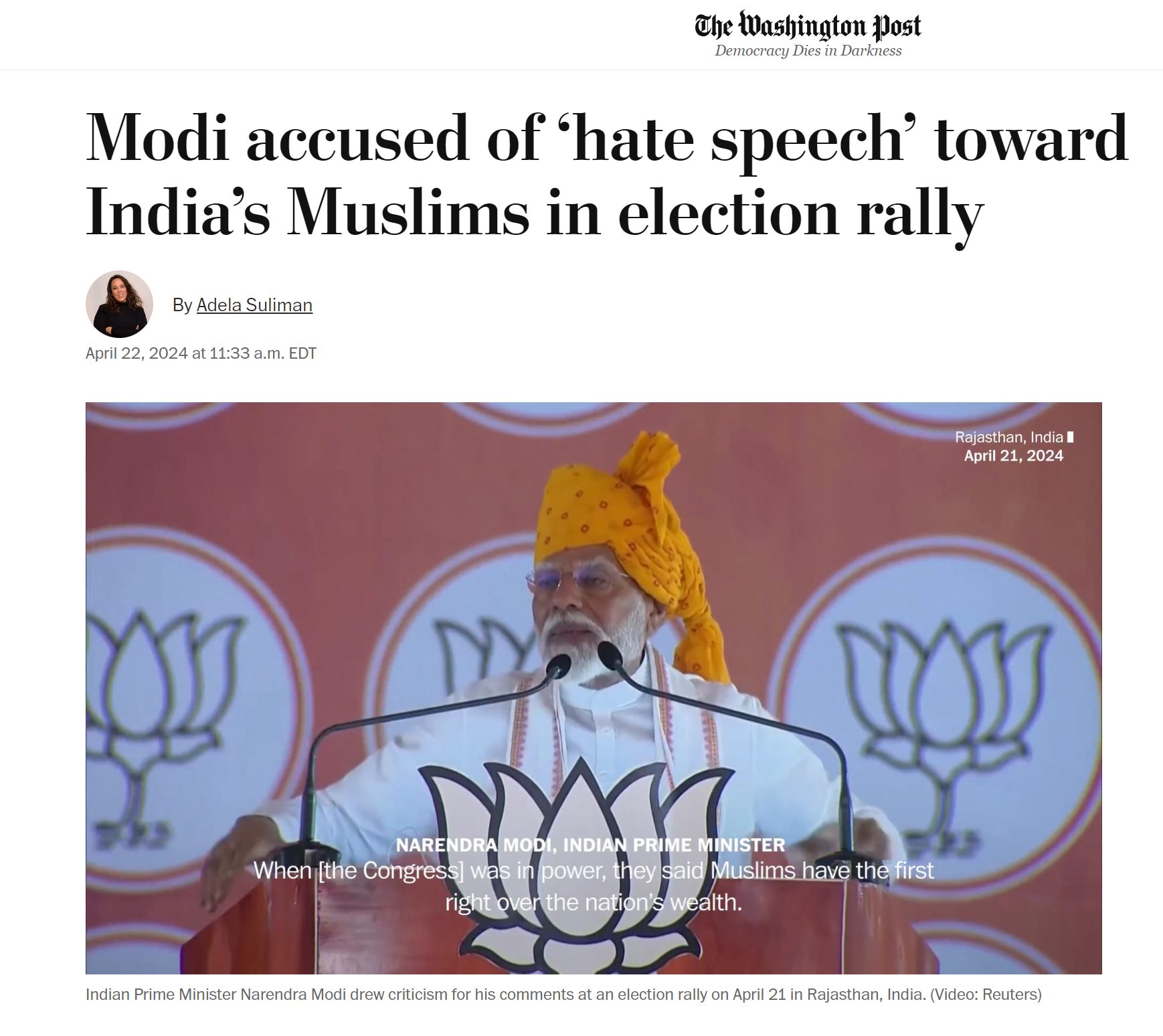
CNN writes in its report, “India’s Prime Minister Narendra Modi has been accused of delivering Islamophobic remarks during an election rally Sunday, triggering widespread anger from prominent Muslims and members of the opposition.” The report also draws attention to the fact that the speech was in violation of the election code of conduct. “The code states politicians must not appeal to voters based on “caste” and “communal feelings.” Activity which “may aggravate differences or create mutual hatred or cause tension” between communities and religions, is also not allowed. CNN has contacted the ECI for comment.”
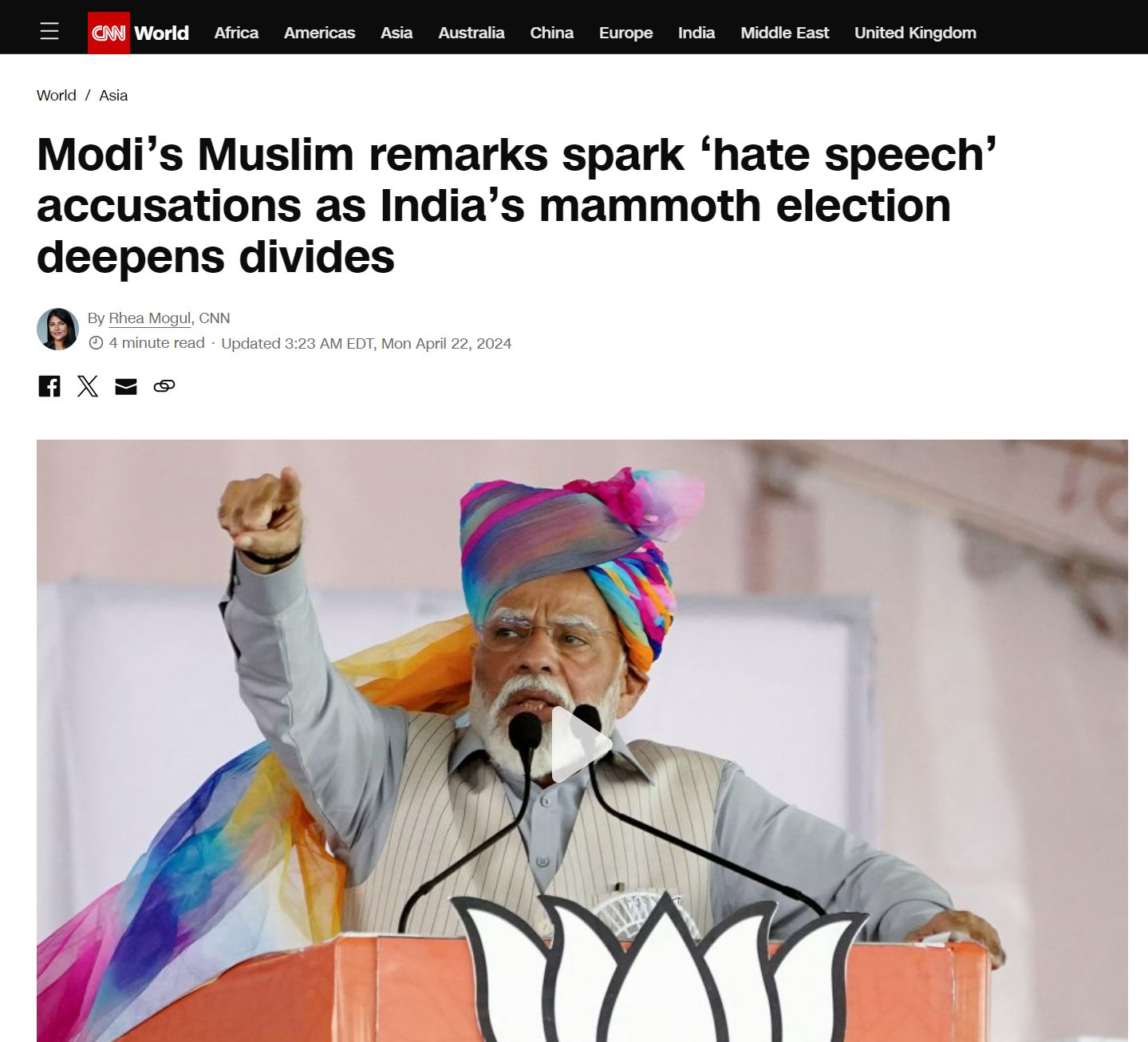
In a hard-hitting report, Al Jazeera writes that Modi’s alleged hate speech might signal a shift in his campaign strategy. “Indian Prime Minister Narendra Modi is facing accusations of spreading hatred against Muslims after controversial comments on Sunday wherein he equated the community to “infiltrators” and peddled anti-Muslim tropes in the middle of the country’s general elections.” This report, too, points out that the election commission has received complaints against Modi for the Banswara speech, and adds, “But independent watchdogs and activists have long complained that election officials act too slowly, if at all, especially when cases involve powerful officials in the government.”
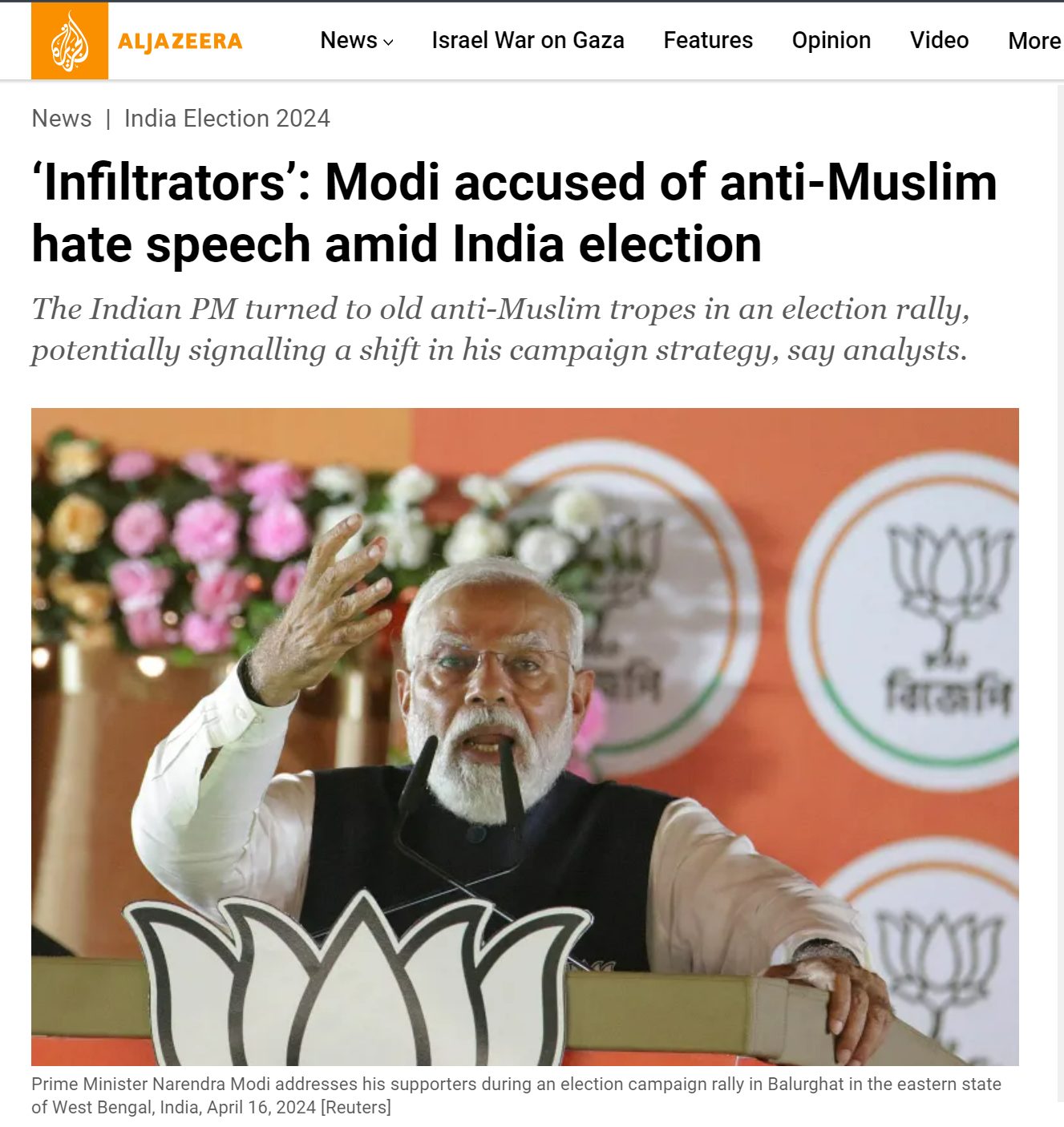
Time Magazine writes, “The remarks appeared to be a reference to harmful tropes that accuse Muslims of displacing Hindus by building large families. The comments have been widely criticized by opposition leaders and prominent Muslim figures and triggered anger worldwide… India is home to some 1.44 billion citizens. Modi’s BJP party has been criticized for viewing the Muslim community, which includes asylum seekers and refugees from Bangladesh and Myanmar, as outsiders. Critics say Modi’s comments build on a divisive campaign of Hindu nationalism has been associated with the ruling BJP, which is expected to claim a third consecutive term.”
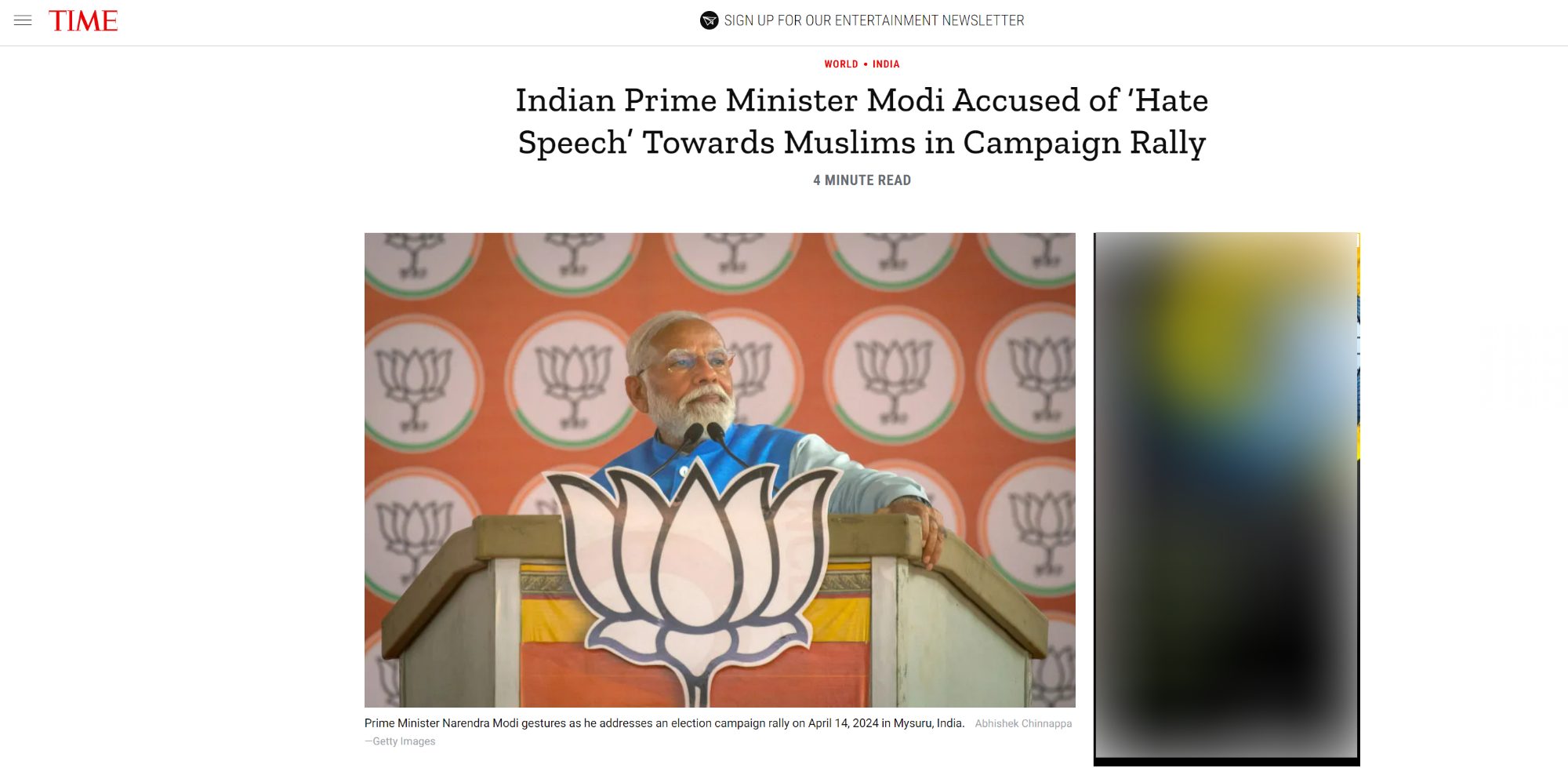
The BBC reported on Modi’s speech and remarked that “Rights groups say that they face discrimination and attacks, and have been forced to live as “second-class” citizens under Mr Modi’s rule – an allegation the BJP denies.”
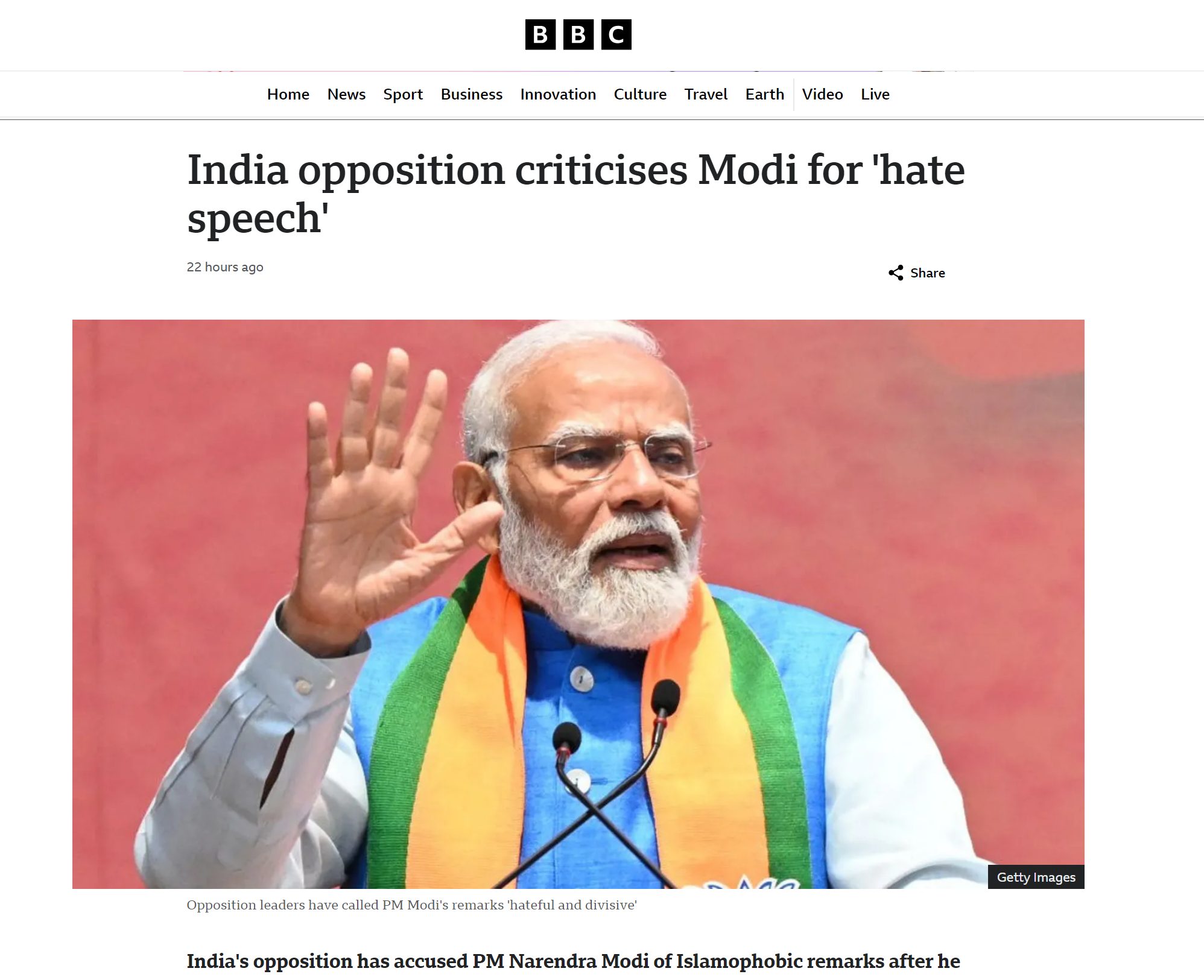
The New York Times used the strongest terms while criticizing Modi for his remarks. It writes, “The direct language used against the country’s largest minority was a contrast to the image Prime Minister Narendra Modi presents on the world stage.” The report also states, “Prime Minister Narendra Modi on Sunday called Muslims “infiltrators” who would take India’s wealth if his opponents gained power — unusually direct and divisive language from a leader who normally lets others do the dirtiest work of polarizing Hindus against Muslims.”
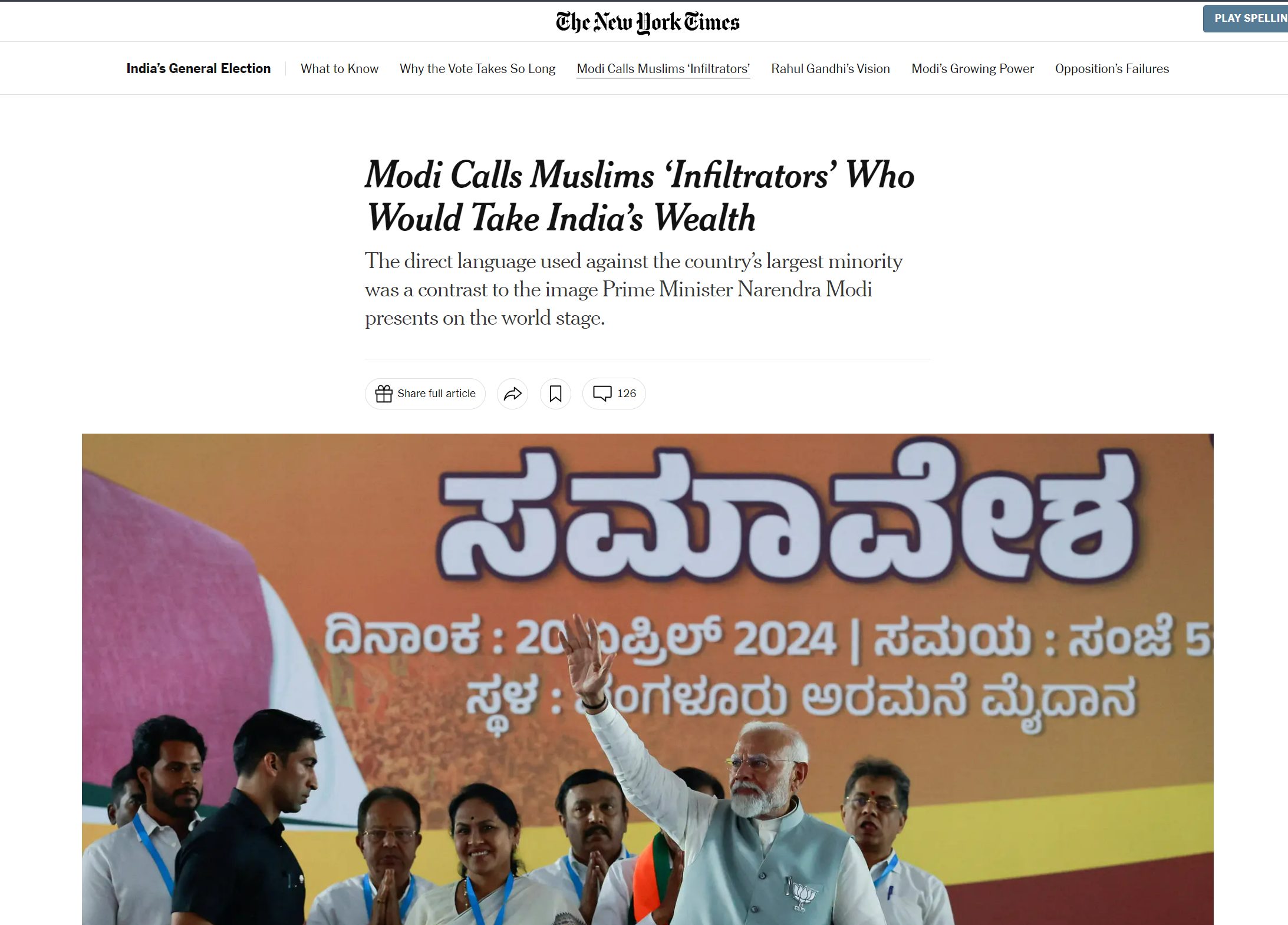
The Guardian put Modi’s comments into perspective by saying “Since the BJP came to power in 2014 with a Hindu nationalist agenda, it has been accused of policies and rhetoric that targeted minorities, particularly Muslims, who have allegedly been subjected to rising violence and persecution both by the state and by right-wing Hindu vigilante outfits. The BJP has only one Muslim candidate running in this election.”
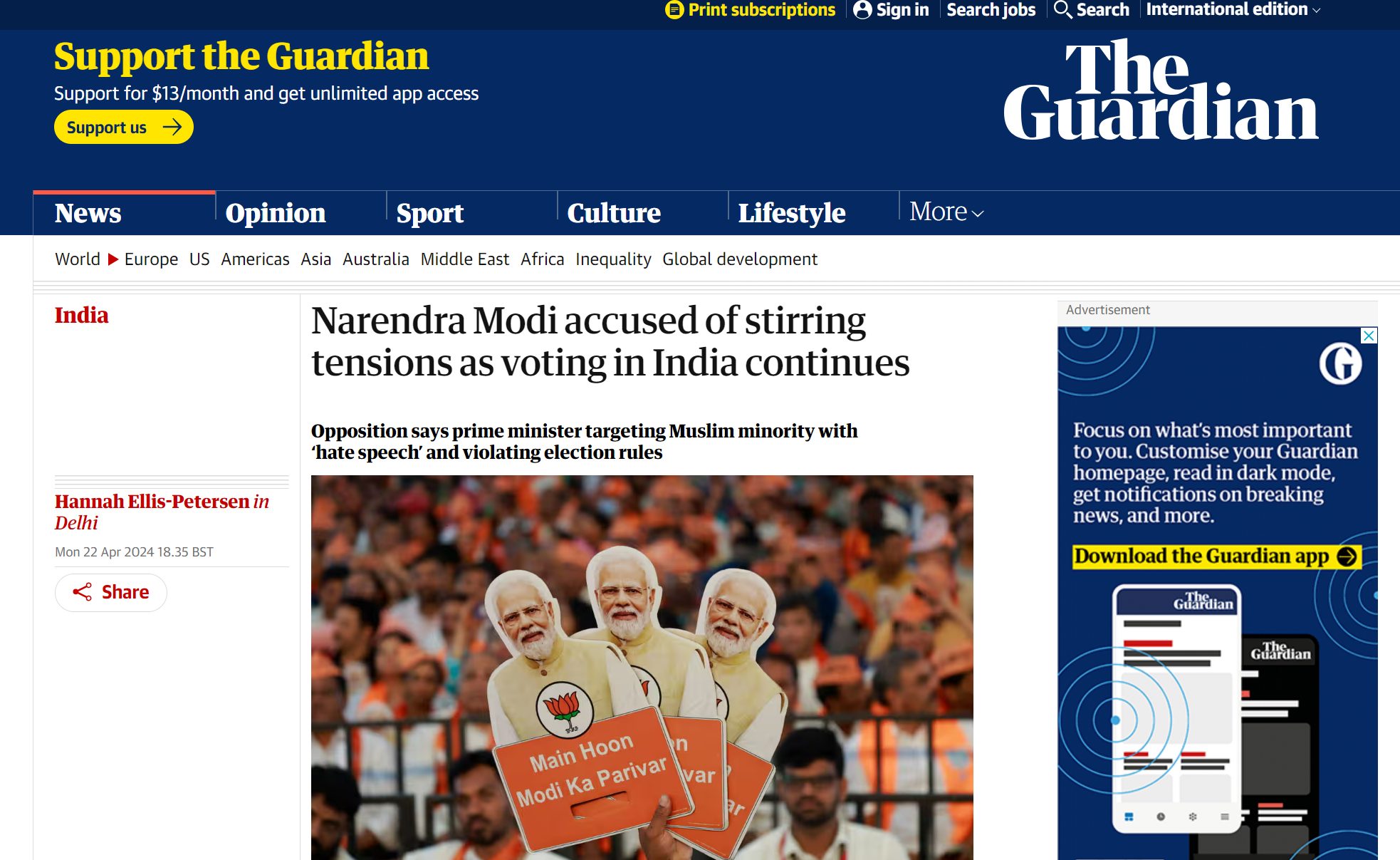
Independent journalism that speaks truth to power and is free of corporate and political control is possible only when people start contributing towards the same. Please consider donating towards this endeavour to fight fake news and misinformation.

